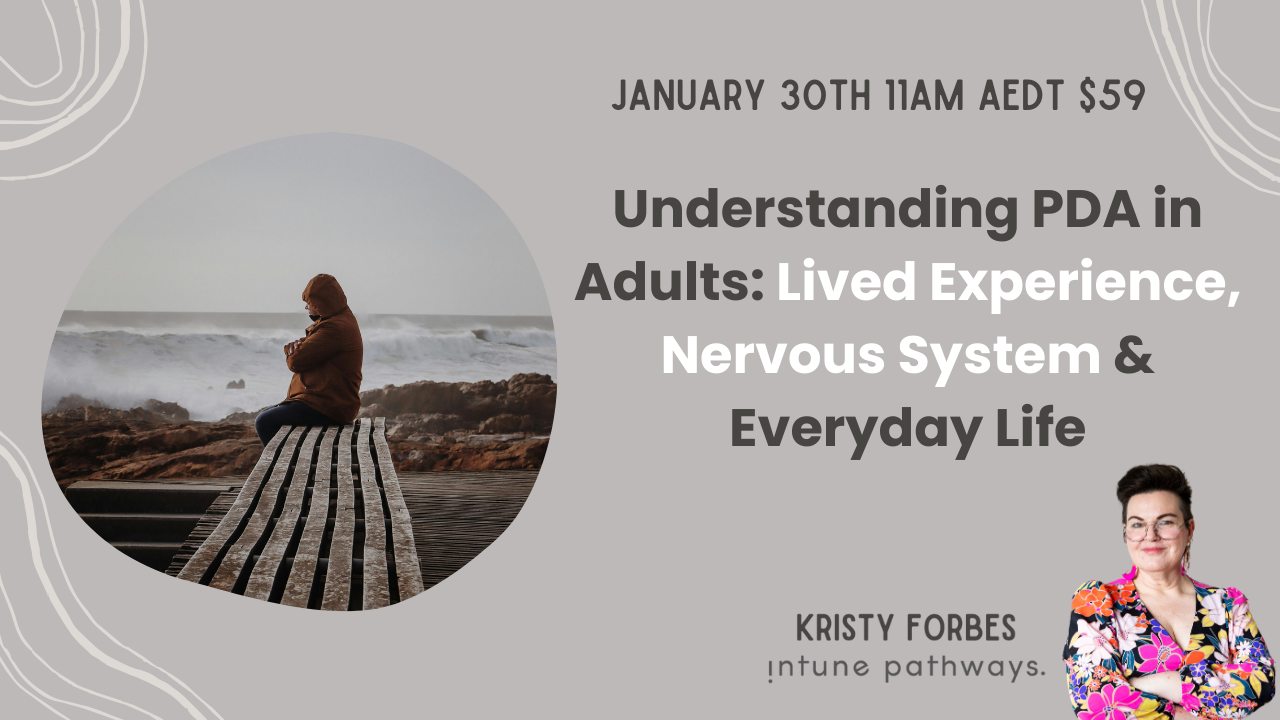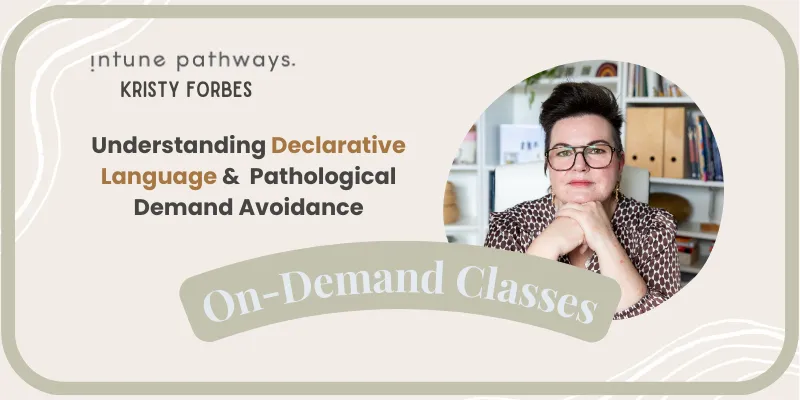On the blog this week:
When PDAers become animals
Kristy explores a question she’s asked often: what to do when PDA children become animals (or other beings) from dawn to dusk. Rather than seeing this as “escaping reality,” she reframes animal-being as a remarkable act of nervous system wisdom, a creative, protective bridge that helps a child survive relentless demand and return to safety.
This piece invites adults to meet the cat, dog, werewolf or whale with curiosity and respect, noticing the clues beneath “animals don’t use cutlery” or “giraffes don’t ride in cars.” It’s a call to go gently, honour imagination as regulation, and remember that presence may be something we need to learn from our children, not demand from them.
New! Upcoming Live Masterclass:

Understanding PDA in Adults: Lived Experience, Nervous System & Everyday Life
Live Masterclass | Friday 30th January at 11:00am (AEDT)
$59 AUD • Recorded • Lifetime Access • Slides, Transcript & Resource Guide Included
Empowering, practical downloadable resources for Families Just $15 Each!
Explore our newest collection of practical, easy-to-use downloadable guides designed to support families navigating PDA (Pathological Demand Avoidance).
From sibling dynamics to advocacy scripts, each guide is packed with actionable tools and compassionate insights to help you make a difference—at home, in school, and beyond.
Get yours for just $10 per guide by clicking on the images below! 💡✨
With heartfelt sincerity, Welcome.
I am so glad you are here.
I was once the misunderstood, unsupported young person with unresourced family, educators and professionals.
At 15, I left the education system entirely, after years of ‘school can’t’, and found myself seeking belonging in all the places I found my teen neurokin from similar backgrounds: the juvenile court system, homeless and preparing myself to become a parent at the age of 18. Poor mental health, hopelessness and total isolation in my earlier years threatened to defeat my resolve to find a way to live differently, and to understand myself.
I was able to turn my life around BECAUSE I am a PDA autistic with ADHD and CPTSD, and never despite it.
I share many of the experiences families share with me, thinking they’re alone.
With 27 years experience parenting my own neurodivergent children, all four of them PDAers among other varying forms of neurodivergence, there isn’t an experience I haven’t traversed myself, or as a parent, family member or professionally.

You’re not alone. You’re not causing your child’s challenges. Your child is not broken and neither are you.
You are not weak, too submissive, or enabling your child. You are not causing learned helplessness and I know you’ve heard this many times before.
You and I both know you have done all you know to do. You have researched, reached out, been firmer, been softer, tried all the approaches available to you, and in amongst it all you’re suffered. And I mean.. suffered.
I know it’s lonely, it’s isolating and the hardship of navigating a world that doesn’t know better, is utterly exhausting.
By my twenties, after many years of adversity, I entered university and started carving a pathway to the life I needed to live by design. I didn’t know it at the time, but the inherent wisdom that PDA offers me lit the pathway.
We are passionate about RADICAL ACCEPTANCE & the celebration of neurodivergence. We work toward social change that is built on a foundation of inclusion, equity & support.
Our practice is FAMILY centred, with an emphasis on the need for the entire family to have their individual needs met in order to THRIVE.
We are LGBTQIA+ embracing & we understand that culture, race, disability, neurotype & gender diversity all contribute to a rich & thriving society when all of our luminous qualities & values are UNDERSTOOD, and embraced.
How to engage demand avoidant children with learning at home (when school is not an option)
Looking for a freebie?
Many parents email in and ask what schooling from home might look like. Is it overwhelming? Is it something that only someone qualified can do?
Kristy sheds light on what education at home can look like, along with images and video from her own experience as a home educating parent of a PDA young person.
Just enter your details into the form below to get started and we'll send out your free masterclass!
Enter your details for your free masterclass below
We hate spam and promise not to do this to you. Once your name and email address are entered below, you'll receive the masterclass link directly in your inbox. Be sure to check your junk and spam folders.
“I would like you to know that your courses have brought my family so much more peace and happiness. Every single member of my family is neurodivergent, and we struggled to pretend to be 'normal' for a very long time, instead of accepting our true selves and doing what works best for us.
When my mum took your courses, it really changed her views and brought her and me so much closer together. I used to be embarrassed and ashamed of my autism and ADHD, but I do not carry that shame anymore. I am proud of who I am, and I know that at home, I am completely safe and supported.
I think your work is so important in changing the narrative about autistics and their families. Thank you for all you have done and continue to do for our community!”
– Very happy 16-year-old









































